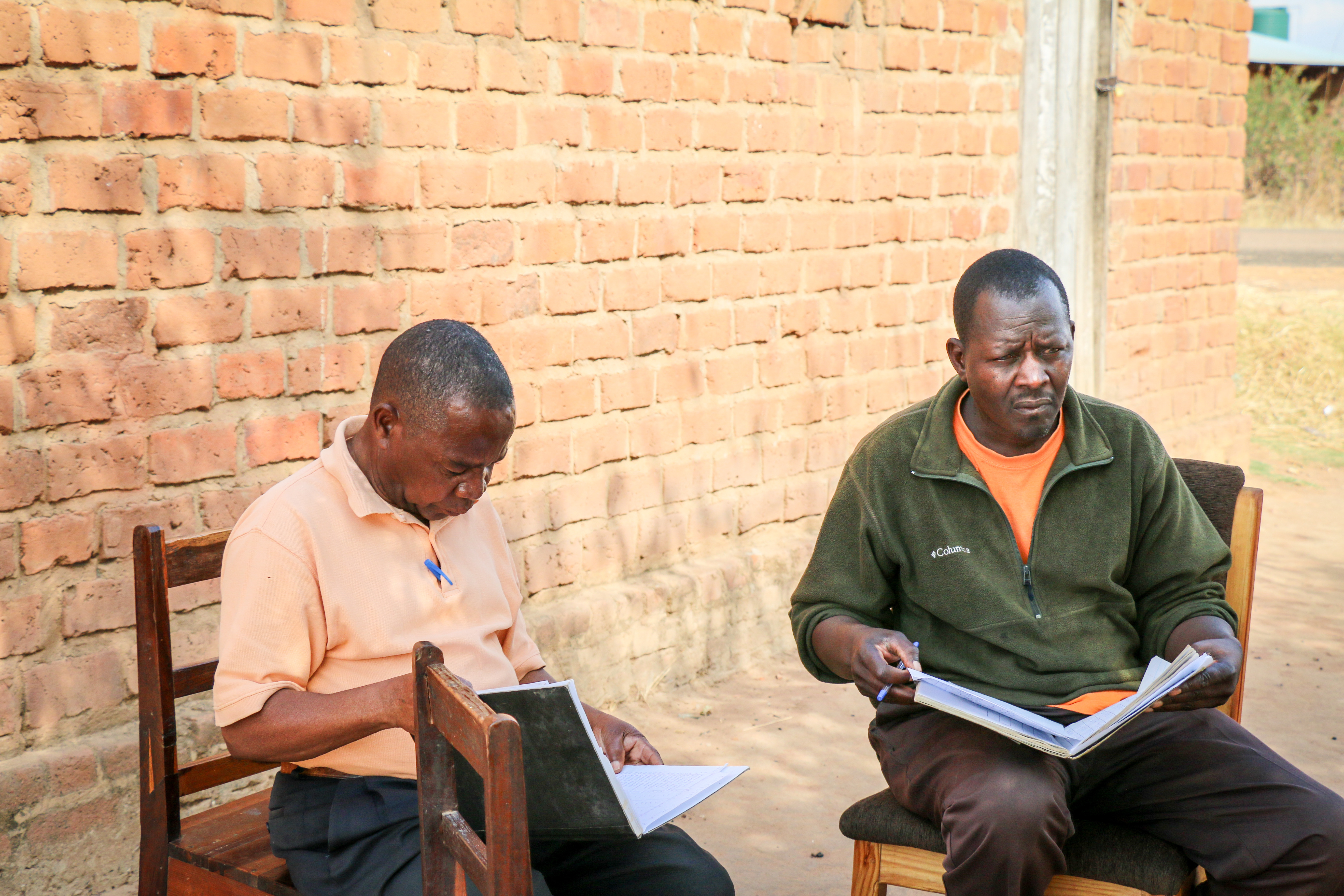
In 2010, 25 small business owners in the Feni area of Chief Mpezeni, Chipata created the Feni Agribusiness and Savings group. In August 2015, the USAID-funded Production, Finance, and Improved Technology Plus (PROFIT+) project trained its members in accounting and climate-smart agriculture to improve incomes, yields, and foster food security. PROFIT+, a Feed the Future initiative, increases food security and decreases poverty in Zambia by boosting agricultural production and facilitating privatesector investment in targeted value chains.
Savings Group Treasurer Starts Orchard and Store Thanks to PROFIT+ Support
Father of three, 40-year-old Wilfred Banda, is the group’s treasurer. Before joining the group, Wilfred grew only maize. Now, he grows sunflower and groundnuts for their nutritional value and practices intercropping, which he learned from PROFIT+. His participation in the agribusiness and savings group also inspired him to start an orchard, on which he grows oranges, guavas, and mangos. He eats some of the fruit and sells the rest.

Thanks to a good harvest and PROFIT+ assistance, Wilfred opened a grocery store in 2015. He orders many of the items he sells for a small markup and invests his profits in the savings group. He credits his successes largely to PROFIT+: “I had no business when [PROFIT+] was starting, but now I have a business. Before I was only farming. I also have a good orchard. I got all these great ideas from PROFIT+.” Wilfred continues, “I can now choose what to eat unlike before.” As his efforts have safeguarded his food security, Wilfred is now able to exercise choice when deciding what to eat and can incorporate a greater diversity of foods into his diet.
PROFIT+ Inspires Other Entrepreneurs and Boosts Self-Sufficiency
Not only is 52-year-old Yotam Banda a father of eight, he is also a serial entrepreneur. He chairs the Feni agribusiness and savings group. He owns a large dimba—marshland—where he grows a variety of vegetables that he sells in Chipata’s large market. He also has a farm and built a house that he rents. None of his successes would have been possible without savings.

Members of the Feni saving group must save between 30 and 360 kwacha ($3-$36 USD) per month. They accrue 25 percent interest on their savings. As of August 2016, the group’s assets are 66,000 kwacha ($6,619 USD).
At year’s end, the savings group returns members’ money. During the course of the year, each member is eligible to borrow against the amount they have saved. Each time a member requests a loan, they must pay back the principal plus 25 percent interest; that’s how the group makes money.
The group’s business acumen is extremely impressive. Group members run a variety of businesses, including grocery stores, bakeries, gardening centers, and clothing consignment stores. Always eager to learn, members host trainings based on their skills sets–sewing, cooking, and gardening—and group interest.
Yotam Banda explains: “PROFIT+ trainings assisted our group in gardening, improved farming techniques, and simple accounting.” Part of the accounting training focused on how to create a fee structure and reserve funds for social responsibilities and emergencies. As part of its commitment to being socially responsible, the group uses some of its profits to help send young adults from the community to university.








